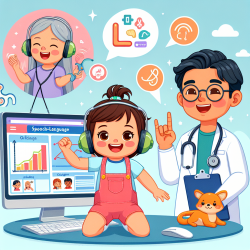Understanding the Intergenerational Impact of Child Maltreatment
Recent research, as presented in the study "Emerging Adults’ Adverse Life Events and Psychological Functioning: A Comparison Based on Intergenerational Trajectories of Child Maltreatment," sheds light on the complex dynamics of child maltreatment (CM) and its intergenerational effects. This study provides crucial insights for practitioners aiming to break the cycle of abuse and improve psychological outcomes for children.
Key Findings and Implications
The study examined 185 mother-emerging adult (EA) dyads to explore how maternal histories of CM affect their children's exposure to CM and subsequent psychological functioning. The findings reveal that maternal histories of CM are associated with increased exposure to neglect and physical abuse in their children. Additionally, these histories correlate with a higher number of interpersonal traumas experienced by the children in adulthood.
Interestingly, the study found that while a maternal history of CM is a risk factor for intimate partner violence (IPV) in maltreated EAs, it appears protective for non-maltreated EAs. This suggests that breaking the cycle of maltreatment can lead to resilience and even protective effects in subsequent generations.
Practical Applications for Practitioners
For practitioners working with at-risk children, these findings underscore the importance of documenting parental histories of CM. This information should be integrated into assessments and intervention strategies to tailor support effectively.
- Assess parental histories of CM to identify potential risk factors.
- Incorporate family-focused interventions that address the entire family system, not just the individual child.
- Utilize evidence-based prevention programs to mitigate the risk of intergenerational trauma.
Moreover, the study highlights the role of material deprivation as a significant factor in psychological outcomes. Practitioners should consider socioeconomic contexts when designing interventions, as financial hardship can exacerbate the effects of CM.
Encouraging Further Research
This study opens the door for further research into the mechanisms of intergenerational trauma. Practitioners are encouraged to stay informed about emerging research in this field and consider participating in studies that explore the nuanced effects of CM across generations.
To read the original research paper, please follow this link: Emerging Adults’ Adverse Life Events and Psychological Functioning: A Comparison Based on Intergenerational Trajectories of Child Maltreatment.










